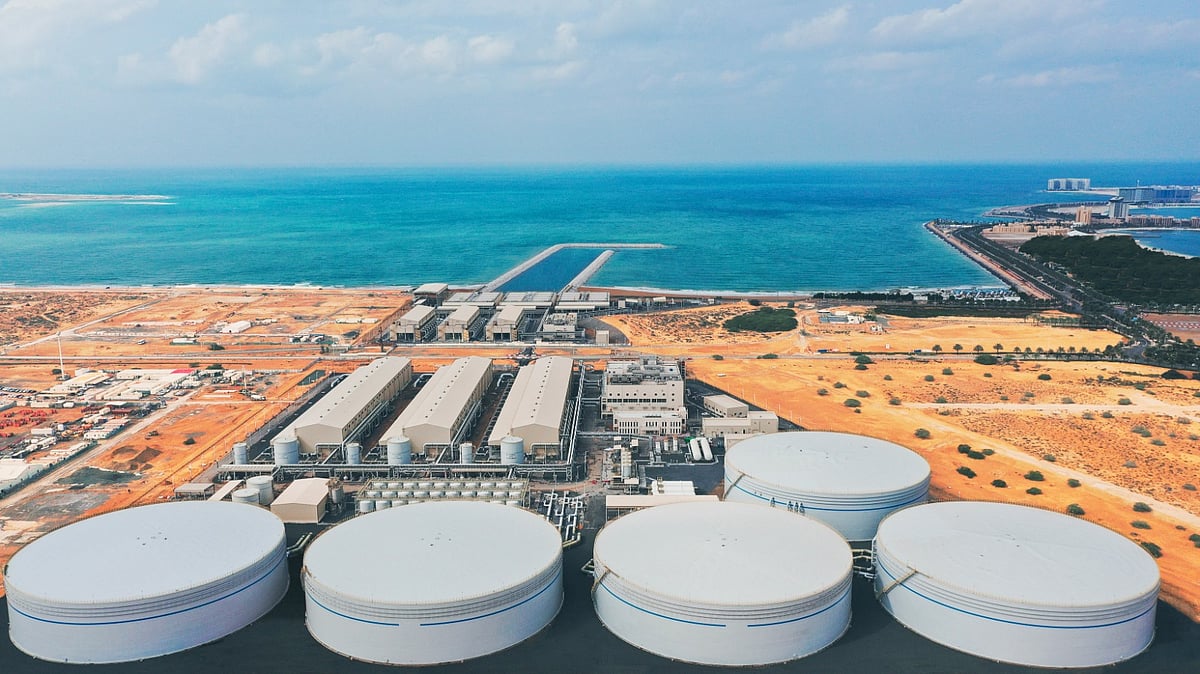UAE races to meet energy demand as population boom tests aging infrastructure
Northern Emirates achieve water self-sufficiency with new desalination tech, says EtihadWE

Dubai: The UAE’s northern emirates is experiencing a dramatic 10 per cent annual surge in energy demand for the second consecutive year. And this is forcing utility companies to fast-track billions of dirhams in infrastructure investments to keep pace with a rapidly growing population.
Thomas Spannring, Chief Financial Officer of Etihad Water and Electricity (EtihadWE), revealed to Gulf News, on the sidelines of the Water, Energy, Technology, and Environment Exhibition (Wetex), the scale of the challenge facing the utility responsible for powering the northern emirates.
"We have now, in 2025, the second year in a row, a demand growth of more than 10 per cent," Spannring said. "That is predominantly driven, but not only, by people moving to the northern Emirates," he explained.
The surge has caught planners off guard. According to Spannring, the business forecasts from just two years ago anticipated growth of 5-6 per cent – already considered substantial for infrastructure planning.
Water self-sufficiency
One bright spot in the infrastructure race is the water supply. The northern Emirates have achieved near self-sufficiency through the Naqa’a desalination plant (inaugurated in UAE last year), which supplies 150 million gallons daily – covering 75 per cent of the region’s water needs.
"In the past, we bought water from Abu Dhabi," Spannring explained. "By that one, the northern Emirates became more or less self-sustaining from a water supply perspective."
The Dh2.2 billion reverse osmosis facility is among the world’s largest and most efficient desalination plants. The technology consumes significantly less energy than the thermal desalination methods used two decades ago, making it a cornerstone of the utility's net-zero strategy.
Etihad WE has been actively investing in reverse osmosis (RO) desalination technology to enhance sustainability in water production. The company has further plans to expand its investments in this area.
Key investments include Dh465 million for upgrading water networks in the northern emirates, with Dh214 million earmarked explicitly for replacing Ras Al Khaimah's water infrastructure.
Managing costs
According to Spannring, the population boom is leading EtihadWE into a dual-track investment strategy: expanding the grid while simultaneously rehabilitating aging infrastructure.
“We have to do both," Spannring admitted when asked whether the priority was new facilities or optimising existing ones. "We have to expand our grid, but expanding the grid is not necessarily increasing the supply,” he said.
The challenge is compounded by long lead times. Upgrading the grid requires a minimum of 18 months, factoring in permissions, supplier coordination, and contractor deployment.
Aging pipes
A major focus is reducing water losses from pipelines that are 30 years old or older. The utility is rehabilitating its distribution networks to address "non-revenue water" – industry terminology for water lost to leakage and commercial losses before it reaches customers.
"Every gallon that I don’t lose, I can sell to a customer," Spannring said. The utility has introduced digital metering infrastructure to monitor consumption more closely and identify losses faster.
Renewable sources
The transition to renewable energy is accelerating as costs drop dramatically. Thomas Altmann, Executive Vice President of Innovation and New Technology at ACWA Power, stated that his company has driven down solar costs from 5.9 cents per kilowatt-hour in 2015 to between 1-2 cents in Saudi Arabia and 2-3 cents in the UAE.
"We have achieved a target level which was met by fossil fuel power plants. And now we are lower," Altmann said. When combined with battery storage, renewable energy can provide baseload power without the need for subsidies.
Spannring confirmed that rooftop solar initiatives are being reconsidered to help manage peak demand, which occurs during midday when the sun shines brightest and air conditioning use soars. Battery storage can help stabilize the grid and mitigate the intermittent nature of solar power.
Optimising plant operations
ACWA Power is deploying industrial AI to reduce operational costs. The company saved a significant amount of money in 2019 by using machine learning to optimize chemical dosing at its water treatment plants.
"We are developing AI agents in orchestration with humans in the loop to make decisions," Altmann said. The approach, called "agentic AI," automates routine tasks while keeping decision-making power with humans. "This will bring us to the next level of optimization and reduce cost and energy consumption.
Sign up for the Daily Briefing
Get the latest news and updates straight to your inbox
Network Links
GN StoreDownload our app
© Al Nisr Publishing LLC 2025. All rights reserved.